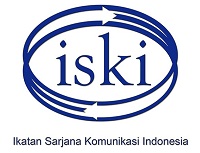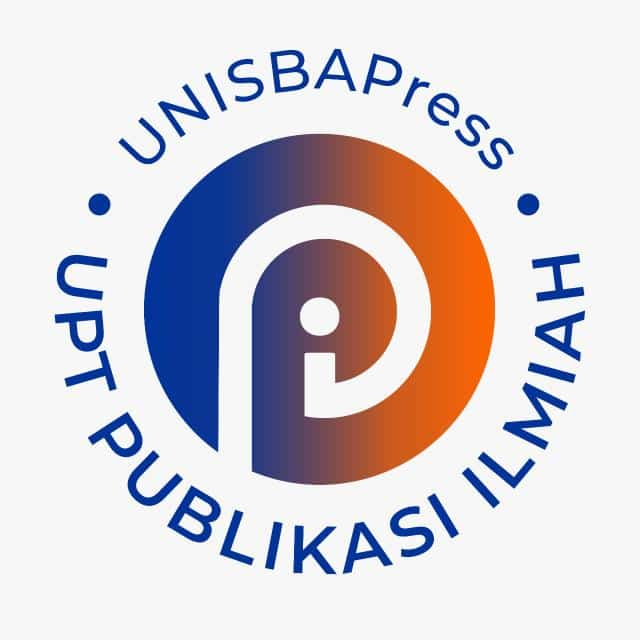Narrative Policy Framework: Media's Role in 2024 Local Leaders Election Policy
DOI:
https://doi.org/10.29313/mediator.v17i2.4409Keywords:
Narrative Policy Framework, Media Influence, Local ElectionsAbstract
The research aims to analyze the strategic role of the media in shaping the narrative of the 2024 simultaneous regional head elections in Indonesia, focusing on how the media influences people's perceptions and political decisions. This research used a qualitative method, employing the Media Role Narrative approach by collecting and analyzing data from Kumparan, Detik, and Kompas media. NVivo 12 Plus was utilized to systematically manage and analyze qualitative data, allowing researchers to identify narrative patterns and themes from many news articles efficiently. Using the ‘Crosstab Query’ and ‘Word Cloud’ features of NVivo 12 Plus, the researchers could see that narratives related to specific candidates, such as corruption allegations against one of the regional head candidates, were often repeated in Kompas and Detik news articles. The results revealed that the media has a role in shaping election narratives, but previous literature demonstrates that its influence on election outcomes tends to be indirect and non-deterministic. This study provides new insights into the impact of media narratives in the context of local elections, revealing how narratives can be directed to strategically influence public opinion. It also offers a policy framework that can support the creation of fair and balanced narratives in the context of local democracy.
References
Aryal, S. K., & Bharti, S. S. (2022). Changing the media landscape in India under the Modi government: a case study based on the Narrative Policy Framework. Studia z Polityki Publicznej, 9(3(35)), 47–64. https://doi.org/10.33119/kszpp/2022.3.3
Bertrand, A. R., Lyon, M. A., & Jacobsen, R. (2024). Narrative spillover: A narrative policy framework analysis of critical race theory discourse at multiple levels. Policy Studies Journal, 52(2), 391–423. https://doi.org/10.1111/psj.12523
Browning, N., & Sweetser, K. D. (2020). How media diet, partisan frames, candidate traits, and political organization-public relationship communication drive party reputation. Public Relations Review, 46(2), 101884. https://doi.org/10.1016/j.pubrev.2020.101884
Carr, C. T. (2020). The Delocalization of the Local Election. Social Media + Society, 6(2), 205630512092477. https://doi.org/10.1177/2056305120924772
Chaiyaphum, A., Kahaban, T., Khuenkhaew, Y., Yonwilad, W., & Rakngam, N. (2023). Social Media Knowledge Regarding Local Election Affects Undergraduates’ Participation. Journal of Educational Issues, 9(1), 59. https://doi.org/10.5296/jei.v9i1.20552
Dinata, A. W., & Akbar, M. Y. (2022). Mitigation of Indonesia Concurrent Election Dispute Settlement in 2024. Proceedings of the Universitas Lampung International Conference on Social Sciences (ULICoSS 2021), 628. https://doi.org/10.2991/assehr.k.220102.055
Febriani, N. S. (2020). Preferensi Media Sosial Generasi Milenial pada Tingkat Pengetahuan Calon Legislatif. Nyimak: Journal of Communication, 4(1), 89. https://doi.org/10.31000/nyimak.v4i1.2225
Fionna, U., & Hutchinson, F. E. (2019). Indonesia’s 2019 Elections: a Fractured Democracy? Asian Affairs, 50(4), 502–519. https://doi.org/10.1080/03068374.2019.1672400
Galuh Larasati, Y., Fernando, H., Jubba, H., Abdullah, I., Darus, M. R., & Iribaram, S. (2023). Past preferences informing future leaders for Indonesian 2024 general elections. Cogent Social Sciences, 9(1). https://doi.org/10.1080/23311886.2023.2229110
Hughes, D. (2020). Does local journalism stimulate voter participation in state supreme court elections? Journal of Law and Courts, 8(1), 95–125. https://doi.org/10.1086/704742
Istiqoh, A. E., Qodir, Z., & Ahmad, Z. H. (2022). Narrative Policy Framework: Presidential Threshold Policy Toward the 2024 Election. Jurnal Bina Praja, 14(3), 505–516. https://doi.org/10.21787/jbp.14.2022.505-516
Jones, M. D., & McBeth, M. K. (2020). Narrative in the Time of Trump: Is the Narrative Policy Framework good enough to be relevant? Administrative Theory and Praxis, 42(2), 91–110. https://doi.org/10.1080/10841806.2020.1750211
Khotami, K., Gesmi, I., Yogia, M. A., Amri, P., & Sasmi, D. T. (2023). Policy Development for Handling COVID-19 from the Perspective of a Policy Narrative Framework. Journal Public Policy, 9(2), 136. https://doi.org/10.35308/jpp.v9i2.6858
Kuhlmann, J., & Blum, S. (2021). Narrative plots for regulatory, distributive, and redistributive policies. European Policy Analysis, 7(S2), 276–302. https://doi.org/10.1002/epa2.1127
Liçenji, L. (2023). The Role of Social Media on Electoral Strategy: An Examination of the 2023 Municipal Elections in Tirana, Albania. Academic Journal of Interdisciplinary Studies, 12(6), 238–250. https://doi.org/10.36941/ajis-2023-0166
Lysychkina, I. (2019). Mass-Media Specificity of Building an Effective Narrative as a Strategic Communication Tool. PSYCHOLINGUISTICS, 26(2), 224–242. https://doi.org/10.31470/2309-1797-2019-26-2-224-242
Marbun, L. F., & Girsang, L. R. (2019). PEMAKNAAN PERANG TANDA PAGAR ‘#’ ANTAR DUA KUBU CALON PRESIDEN INDONESIA 2019 DI MEDIA SOSIAL (Analisis Semiotika Peirce Pada Sampul Majalah Tempo Edisi 04 Juni 2018). SEMIOTIKA: Jurnal Komunikasi, 13(1). https://doi.org/10.30813/s:jk.v13i1.1790
McBeth, M. K., & Pearsall, C. A. (2021). Using the Narrative Policy Framework in the Teaching of Introduction to Politics. Journal of Political Science Education, 17(sup1), 880–896. https://doi.org/10.1080/15512169.2019.1682594
Mintrom, M., & O’Connor, R. (2020). The importance of policy narrative: effective government responses to COVID-19. Policy Design and Practice, 3(3), 205–227. https://doi.org/10.1080/25741292.2020.1813358
Misbahudholam, M. A., Rofik, R., & Hanafi, A. (2023). Expensive Political Costs in the 2024 Simultaneous Elections. Jurnal Hukum Dan Sosial Politik, 1(1), 01–20. https://doi.org/10.59581/jhsp-widyakarya.v1i1.144
Nafiah, A., & Hidayat, N. A. (2021). COVID-19 Pandemic and Simultaneous Regional Head Elections in Indonesia. Indonesian Journal of Law and Society, 2(2), 145. https://doi.org/10.19184/ijls.v2i2.24661
Neto, D. D. R., & Barcelos, M. (2020). Stories in the agenda: A narrative policy framework study. Revista de Administracao Publica, 54(6), 1632–1653. https://doi.org/10.1590/0034-761220190395x
Noor, M., Hairunnisa, H., & Ghufron, G. (2019). Analisis Peran Komisi Pemilihan Umum (KPU) Kota Samarinda dalam Meningkatkan Komunikasi Partisipasi Politik Masyarakat dalam Pemilu 2019. Jurnal Penelitian Pers Dan Komunikasi Pembangunan, 23(2), 127–140. https://doi.org/10.46426/jp2kp.v23i2.110
Plazova, T., Kuz, O., Konnova, N., Korotkov, D., & Galushchenko, O. (2024). Information Warfare as an Instrument of Geopolitical Influence on Ukraine: Main Aspects and The State’s Response. International Journal of Religion, 5(2), 121–130. https://doi.org/10.61707/0g2yt516
Rajagukguk, K. J., Aripin, S., & Wahyudi, H. (2021). Simultaneous General Election: It Is Fair for Democracy in Indonesia. JIP (Jurnal Ilmu Pemerintahan): Kajian Ilmu Pemerintahan Dan Politik Daerah, 6(1), 56–64. https://doi.org/10.24905/jip.6.1.2021.56-64
Rianto, P., Maharani, S., Gelgel, N. M. R. A., Wahyudi, R., & Afif, S. (2023). “Capturing The Watchdog”: How Regional Budget Weaken The Role of Local Media? Mediator: Jurnal Komunikasi, 16(1), 182–195.
Slamet, A., & Yadi, S. (2023). Political Info Channels for West Java Governor Election Policy Prospective. Mediator: Jurnal Komunikasi, 16(2), 350–364. https://doi.org/10.29313/mediator.v16i2.2158
Smajlović, H., & Čolakhodžić, F. (2023). How Does Media Coverage Affect the Outcomes of the Elections? MAP Social Sciences, 4(1), 109–123. https://doi.org/10.53880/2744-2454.2023.4.109
Snytko, O. (2020). Strategic narratives in the system of mechanisms for countering informational influence. Actual Issues of Ukrainian Linguistics: Theory and Practice, 40, 99–118. https://doi.org/10.17721/APULTP.2020.40.99-118
Subekti, D. (2022). The Communication in Social Media About COVID-19 Vaccine: Mapping and Bibliometrics Analysis. ARISTO, 10(2), 232–252. https://doi.org/10.24269/ars.v10i2.5035
Subekti, D., Rahmadi, D., & Al-Hamdi, R. (2023). The political motives of party elites and public responses in Twitter: The idea of postponing Indonesia’s 2024 election. Masyarakat, Kebudayaan Dan Politik, 36(2), 288–301. https://doi.org/10.20473/mkp.v36i22023.288-301
Sulistiyanto, P. (2020). Local Elections and Local Politics in Indonesia: Emerging Trends. Journal of Asian Social Science Research, 2(2), 135–158. https://doi.org/10.15575/jassr.v2i2.23
Syukri, A., Al-Hamdi, R., Suswanta, S., & Kurniawan, D. (2023). Narrative Policy Framework: Analysis of Policy Discourse for the Three-Term Presidential Term. Journal of Government and Civil Society, 7(2), 242. https://doi.org/10.31000/jgcs.v7i2.5880
Wenas, J., & Stefany, S. (2023). Environmental Communication Media Exposure And Behavioural Change. Mediator: Jurnal Komunikasi, 16 (1), 103–115.
Williams, T. T., & Kuzma, J. (2022). Narrative policy framework at the macro level—cultural theory-based beliefs, science-based narrative strategies, and their uptake in the Canadian policy process for genetically modified salmon. Public Policy and Administration, 37(4), 480–515. https://doi.org/10.1177/09520767211065609
Witting, A., & Dudley, G. (2019). Narrative strategies in the policy process: social and cognitive foundations. Journal of Risk Research, 22(9), 1143–1155. https://doi.org/10.1080/13669877.2019.1588915
Wolton, L., & Crow, D. A. (2022). Politicking with evidence: examining evidence-based issues in electoral policy narratives. Policy Sciences, 55(4), 661–691. https://doi.org/10.1007/s11077-022-09478-y
Wolton, L. P., Crow, D. A., & Heikkila, T. (2021). Stepping Forward: Towards a More Systematic NPF with Automation. In Narratives and the Policy Process : Applications of the Narrative Policy Framework. Montana State University. https://doi.org/10.15788/npf3
Downloads
Published
Issue
Section
License
Copyright (c) 2024 Teguh Satria, Zuly Qodir

This work is licensed under a Creative Commons Attribution-ShareAlike 4.0 International License.























